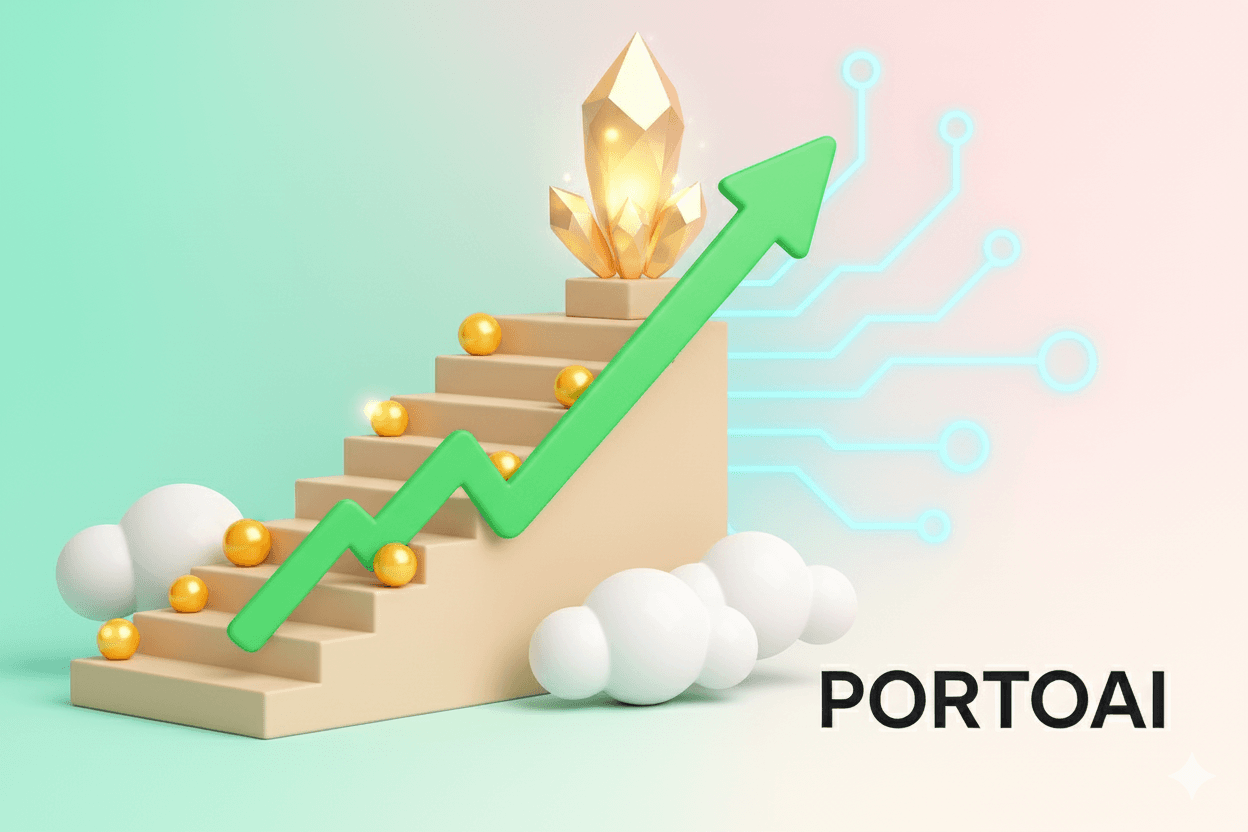How Fund Management Practices Impact Investment Returns: A Data-Driven Guide

Venkateshwar Jambula
Lead Market Researcher
3 min read
•Published on September 20, 2024
•Decoding Fund Management: Practices That Shape Your Investment Returns
Mutual funds offer a pathway to wealth accumulation and consistent returns, with fund managers acting as stewards of your capital. While entrusting your investments to professionals is common, a discerning investor understands the mechanics behind fund management and how specific practices can influence performance. At PortoAI, we believe in empowering you with the data and insights to navigate these complexities.
This analysis delves into common fund management strategies that can significantly impact your portfolio's returns, highlighting how a data-driven approach, like that offered by PortoAI, can illuminate these practices.
The Pervasive Influence of Fund Management Fees (TER)
The Total Expense Ratio (TER) represents the operational costs incurred by a fund house, encompassing compliance, administration, and personnel expenses. This fee is a percentage of the asset value and is charged irrespective of the fund's performance. While essential for fund operation, high TERs can erode potential gains over time.
- Impact: A 1% difference in TER can translate to substantial differences in long-term returns, especially in compounding portfolios. This underscores the importance of scrutinizing fees.
- Industry Evolution: The industry is exploring alternative fee structures, such as performance-based fees, to better align manager incentives with investor outcomes. Hedge funds often employ models like the '2/20' structure (2% AUM fee and 20% profit share above a threshold).
How PortoAI Helps: PortoAI's platform allows you to quickly compare the TERs of various funds and model their long-term impact on your projected returns, enabling a more informed selection process.
The Illusion of Performance: Window Dressing Strategies
Window dressing involves practices designed to present a fund in a more favorable light, particularly before reporting periods. This can include:
- Exiting Underperformers: Selling poorly performing assets to avoid justifying their inclusion.
- Investing in High-Flyers: Temporarily acquiring recently successful stocks to inflate reported performance.
- Style Drift: Diverting from the fund's stated investment strategy for short-term gains, often through IPOs.
Identifying Window Dressing: As an astute investor, meticulously reviewing fund reports and cross-referencing portfolio holdings with the fund's stated strategy is crucial. Look for inconsistencies that suggest artificial inflation of returns.
PortoAI's Insight: Our PortoAI Market Lens can help identify significant deviations from a fund's stated investment style and benchmark, flagging potential instances of window dressing by analyzing portfolio composition shifts.
Closet Indexing: The Risk of Mimicry
Closet indexing occurs when a fund manager claims active management but maintains a portfolio closely mirroring its benchmark index. This strategy aims to achieve similar returns to the index while charging active management fees.
- Motivation: Managers may adopt this to mitigate the risk of significant underperformance and secure incentives tied to benchmark-relative returns.
- Investor Disadvantage: Investors pay active management fees for a strategy that essentially replicates a passive index fund, offering little added value and lower net returns compared to a direct index investment.
PortoAI's Advantage: By analyzing portfolio correlation with benchmarks and expense ratios, PortoAI can help you distinguish between genuine active management and closet indexing, ensuring you're not overpaying for index-like exposure.
Asset Acquisition Incentives vs. Performance Focus
Many mutual fund houses prioritize Assets Under Management (AUM) growth, incentivizing advisors and managers to focus on acquisition through events and new fund launches. This focus can detract from the core responsibilities of investment analysis, research, and performance optimization.
- Impact on Returns: Time spent on asset gathering may leave insufficient resources for diligent portfolio management, potentially compromising long-term investment outcomes.
- Alternative Models: Forward-thinking firms are shifting towards incentive structures based on client portfolio performance, aligning advisor interests with investor success.
PortoAI's Recommendation: Consider passively managed index funds or low-beta funds where such acquisition-based incentives are less prevalent. Alternatively, leverage PortoAI's goal planner and risk console to independently track your portfolio's progress against your objectives, regardless of external management incentives.
Conclusion: Empowering Your Investment Decisions with Data
Understanding these common fund management practices is the first step toward making more informed investment decisions. By scrutinizing fees, identifying performance illusions, recognizing closet indexing, and evaluating management incentives, you can better safeguard your returns. PortoAI is designed to provide the AI-powered analytical tools necessary to cut through the noise and make confident, data-driven investment choices.
Blog
Investment Insights and Tips
Explore our latest investment strategies and insights.

Stocks
Master Investment Psychology: Control Emotions for Smarter Stock Decisions
The Psychology of Stock Investment: Understanding Emotions That Affect Investment Decisions A stock market is a funny place – both the seller and buye...
Venkateshwar Jambula
November 7, 2024
•4 min read

Stocks
Power Grid India Stock: Analyzing PGCIL's Price Movements & Future
The Rise and Fall: Unraveling the Power Grid Corporation of India Stock Price The Power Grid Corporation of India Stock Price (PGCIL) has experienced ...
Venkateshwar Jambula
November 6, 2024
•10 min read

Stocks
Are Multibagger Stocks Still Possible in 2025? Your AI Guide
These 6 Multibagger Stocks Exploded in 2025 — Is Your Portfolio Still in 2022? Till June 2025, the benchmark Sensex has risen by around 4%, reflecting...
Venkateshwar Jambula
November 5, 2024
•11 min read

Stocks
Top 5 Indian Growth Stocks & Sectors for 2025: AI-Driven Insights
Top 5 Best Growth Stocks in India & Sectors to Watch in 2025 You see the market correction in late 2024 and early 2025 was driven by weak economic...
Venkateshwar Jambula
November 4, 2024
•9 min read